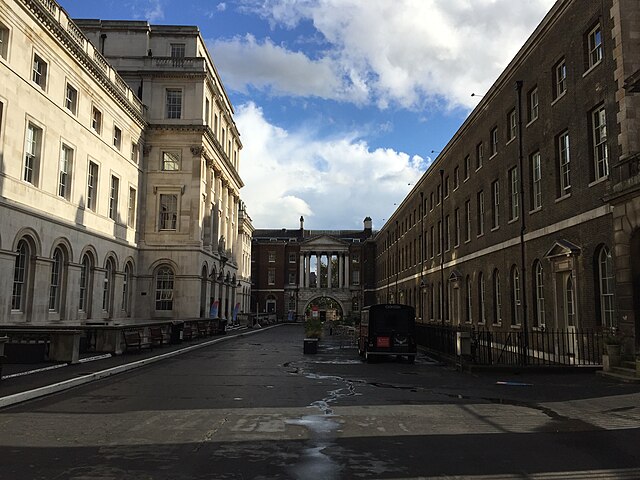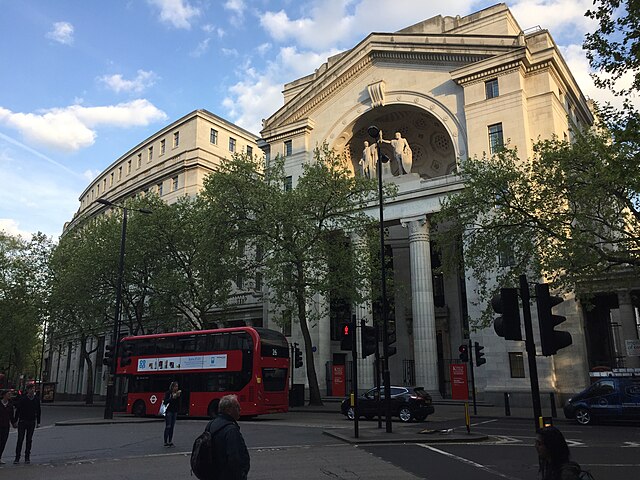
Thammasat University students interested in future studies, economics, business, climate change, ecology, human rights, peace studies, and related subjects may find it useful to participate in a free 24 January Zoom webinar on The nexus between climate change, human rights and peace.
The event, on Wednesday, 24 January at 5pm Bangkok time, is presented by King’s College London, The United Kingdom.
The TU Library collection includes several books about different aspects of climate change and human rights.
Students are invited to register at this link:
https://www.tickettailor.com/events/schoolofsecuritystudies/1116315#
The word nexus in the title of the presentation means a bond, link, or interdependence between members of a series or group.
It derives from a Latin term meaning that which ties or binds together.
The event webpage announces:
Dr. Ian Fry will discuss some of the drivers of conflict brought about by climate change. He will link this to human rights violations particularly in the context of climate change displacement and how this creates conflicts in many parts of the world. He will suggest that for peace to be ensured, the underlying causes of climate change must be addressed.
Speaker: Associate Professor Ian Fry
Dr. Ian Fry is an Associate Professor at the Fenner School of Environment and Society at the Australian National University in Canberra, with a focus on international environmental policy and environmental law. […]
Chair: Dr. Maria Varaki
Dr. Maria Varaki is a Lecturer in International Law at the War Studies Department, King’s College London, and co-director of the War Crimes Research Group. […]

Last year, the website of the United Nations (UN), to which Dr. Fry was a special rapporteur, published his views on climate change and human rights.
Special rapporteur is the title given to independent human rights experts whose expertise is called upon by the United Nations to report or advise on human rights from a thematic or country-specific perspective.
A rapporteur is someone appointed by an organization to report on the proceedings of its meetings.
The French word rapporteur simply means reporter, and since the UN is based in a country, Switzerland, where many people speak French, it often uses French terminology.
Dr. Fry announced:
Legal protection essential for people displaced by climate change: UN expert
“The effects of climate change are becoming more severe, and the number of people displaced across international borders is rapidly increasing,” said Ian Fry, independent human rights expert on climate change, who took up the new post last year.
“In 2020 alone, 30.7 million people were displaced from their homes due to weather-related events. Droughts were the main factor,” Mr. Fry said in his latest thematic report to the Human Rights Council in Geneva. “We must take immediate steps to give legal protection to these people.”
Multiple rights violations
The independent expert said that people displaced by climate change face multiple human rights violations including of their rights to food, water, sanitation, housing, health, education and, for some, their basic right to life.
“The human rights implications of climate change displacement, in particular across international borders, are significant and truly disturbing,” the expert said.
He called it “profoundly worrying” that large numbers of people displaced across borders, die or go missing every year on both land and sea.
More than 50,000 lost their lives during migratory movements between 2014 and 2022. “It is equally shocking to note that more than half of those deaths occurred on routes to and within Europe, including in the Mediterranean Sea,” he said.
Displacement and natural disasters
According to the independent expert, displacement due to climate change can take many different forms.
It can involve sudden events or more slow acting factors such sea level rise or drought. Most people affected by these events feel they have no choice but to move. Women and children are the most impacted by disasters and the effects of climate change, and also account for the majority of displaced people.
“The international community must realise its responsibility to protect people displaced across borders by climate change impacts,” the expert said.
Legal protection
Mr. Fry explained that the world was not operating in a total vacuum in terms of legal protection safeguards, with several options already in place.
“The Human Rights Council should prepare a resolution for submission to the UN General Assembly urging the body to develop an optional protocol under the Convention relating to the Status of Refugees to address displacement and legal protection for people all over the world affected by the climate crisis,” the expert said.
“Until then, I urge all nations to develop national legislation to provide humanitarian visas for persons displaced across international borders due to climate change, as an interim measure,” he said.
Independent experts and other UN Human Rights Council-appointed rights experts, work on a voluntary and unpaid basis, are not UN staff, and work independently from any government or organisation.

A year earlier, in an interview posted on the same website, he declared:
The right to life, food, development, self-determination, water and sanitation, and adequate housing, is being denied to millions of people because of climate change, the first UN Special Rapporteur on the Protection of Human Rights in the context of Climate Change, has told the General Assembly in his first formal report to the body.
Ian Fry, Australian National University Professor and Tuvalu’s former ambassador for Climate Change for over 21 years, was appointed in May by the UN Human Rights Council, as the first Special Rapporteur on climate, following the overwhelming vote to recognize the Right to a Healthy Environment, in 2021.
“Human-induced climate change is the largest, most pervasive threat to the natural environment and societies the world has ever experienced, and the poorest countries are paying the heaviest price”, the expert told delegates.
Mr. Fry highlighted the “enormous injustice” perpetrated by rich countries and major corporations, which are not acting to reduce their greenhouse emissions, and consequently failing the poorest and least able to cope.
“The G20 members, for instance, account for 78 per cent of emissions over the last decade”, he underscored.
The Special Rapporteur sat down with UN News before delivering his report, which focuses on three areas: mitigation action, loss and damage, access and inclusion, and the protection of climate rights defenders.
He spoke about what he hopes the upcoming UN Climate Conference in Egypt (COP27) will achieve, addressed some of the climate-action challenges given the war in Ukraine, and shared some of the recommendations he made to member states, including the call for a High-Level Forum to be held next year. […]
At the moment, the countries most affected by climate change and suffering the costs are having to deal with those costs themselves.
I was recently in Bangladesh and saw firsthand the impacts of climate change. And it’s unfair for countries like Bangladesh to have to deal with the cost of climate change on their own, which is not of their own making. So, the most vulnerable countries produce the least amount of emissions, yet they’re paying the cost of the damage from climate change.
So, it’s time the big countries, the major emitters, stood up and said, “we’ve got to do something, we’ve got to make a contribution to these vulnerable countries”. […]

(All images courtesy of Wikimedia Commons)
